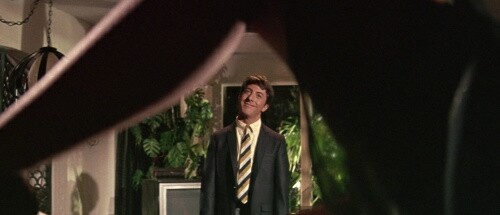Ross Putman is a film producer in L.A., and he started to notice a trend in the movie scripts he read.
The first descriptions of the female lead tended to follow a pattern: they were all focused on how attractive (or unattractive) she is.
So he started tweeting them out at @FemScriptIntros, changing the characters' names to "Jane."
Like draping the Venus De Milo in a burlap dress, Jane’s sensational natural beauty fights through her plain blue Ann Taylor outfit.
— Ross Putman (@femscriptintros)
Like draping the Venus De Milo in a burlap dress, Jane’s sensational natural beauty fights through her plain blue Ann Taylor outfit.
— Ross Putman (@femscriptintros) February 10, 2016
JANE is in her mid-30s and attractive, even now with dark semi-circles underlining her closed eyes.
— Ross Putman (@femscriptintros)
JANE is in her mid-30s and attractive, even now with dark semi-circles underlining her closed eyes.
— Ross Putman (@femscriptintros) February 10, 2016
JANE (late 20s) sits hunched over a microscope. She’s attractive, but too much of a professional to care about her appearance.
— Ross Putman (@femscriptintros)
JANE (late 20s) sits hunched over a microscope. She’s attractive, but too much of a professional to care about her appearance.
— Ross Putman (@femscriptintros) February 10, 2016
JANE pours her gorgeous figure into a tight dress, slips into her stiletto-heeled fuck-me shoes, and checks herself in the dresser mirror.
— Ross Putman (@femscriptintros)
JANE pours her gorgeous figure into a tight dress, slips into her stiletto-heeled fuck-me shoes, and checks herself in the dresser mirror.
— Ross Putman (@femscriptintros) February 10, 2016
"You start to see some patterns in how Jane is seen in these scripts, and how women are seen in general," says Putman. "It's pretty dispiriting how much it's about aesthetics."
He says male leads in scripts are generally described as "handsome" or "having a 5 o'clock shadow."
"On the whole, they're given more of a benefit of a personality, whether it's they're sarcastic or they're quiet or button-down," he says. "There's more going at what's going on internally for men than for the women."
Putman tells Take Two that it can be tough to make Hollywood more welcoming to women when these descriptions are baked into the earliest form of a film through its script.
"If you're an actress trying to be in these movies and you're getting these roles and you're getting these scripts," he says, "you start to realize what your role in movies is: it's to be the object of desire or the object of affection or to fit into the male's storyline."
"The point of the point of this Twitter is not about individual writers, and it's not about shaming a single person and saying, 'go back and change your work.' It's about saying that this is a systemic issue."
To hear the full interview, press the blue play button above.



